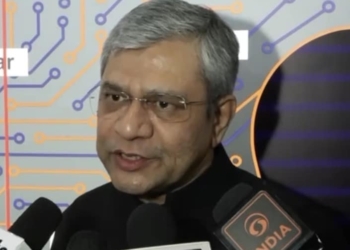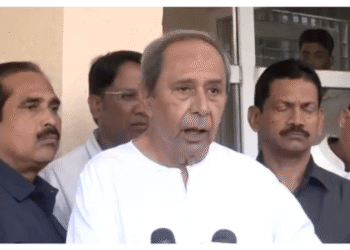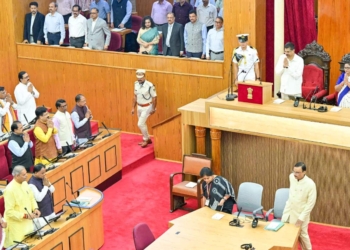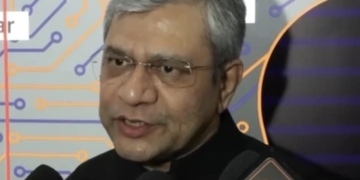Hostilities between India and Pakistan escalated sharply on Saturday as Pakistani forces fired at multiple points along the Line of Control (LoC) for a second consecutive day, officials familiar with the situation said. This marks a significant strain on the February 2021 ceasefire agreement.
Officials reported that scores of Indian posts across north Kashmir were targeted Friday night, leading to the most intense cross-border exchange in four years. Forward-deployed Indian troops responded firmly in sectors like Uri, Tangdhar, Kupwara, and Gurez, and remain fully prepared for any further aggression, the officials added.
Unlike previous brief exchanges, the latest pattern involves sustained, widespread firing across the 740-km frontier, with frequency increasing since the deadly Pahalgam terror attack on April 22, which killed 26 civilians.
The Indian Army responded robustly after Pakistani soldiers also violated the ceasefire at Tutmari Gali in north Kashmir on Thursday. The Pakistani army’s speculative firing—meant to test Indian positions—spanned almost the entire LoC.
The latest developments come amid India’s announcement of tough retaliatory actions against Pakistan, including suspending the 1960 Indus Waters Treaty, shutting down the Attari land crossing, downgrading diplomatic ties, and considering further military options.
Meanwhile, Pakistan retaliated by closing its airspace to Indian airlines, suspending all trade with India (including third-party countries), and threatening to nullify bilateral pacts like the Simla Agreement. Pakistan’s National Security Committee, chaired by Prime Minister Shehbaz Sharif, called India’s suspension of the Indus Treaty an “act of war” and vowed a full-force response.
As tensions climb, Indian officials warned that while the confrontation remains largely in the “non-kinetic” domain for now, escalation into full kinetic conflict—using heavier weapons and artillery—remains a real possibility.
India’s Prime Minister Narendra Modi vowed on Thursday that terrorists and their handlers would be pursued to the ends of the earth, signaling an aggressive shift in counter-terrorism policy post-Pahalgam attack. Defense Minister Rajnath Singh reinforced the warning, stressing that retribution would extend across the LoC to those orchestrating attacks.
The security landscape in Jammu and Kashmir now faces a critical phase, as forces prepare to deal with both infiltration and potential new threats to civilian areas, including tourist destinations.





























